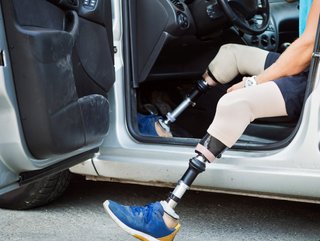Car Manufacturers Urged to prioritise Inclusive Driving

There are up to 1.3bn people with disabilities across the world. For those who drive, manoeuvring a car has historically been a challenge, but advancements in driving technology have been able to keep drivers with different abilities on the road.
Augmented reality helps drivers choose suitable terrain to park on and camera technology offers improved light detection and ranging. However, unlike the steely manual you learned to drive in, these modern connected cars are vulnerable to being hacked, just like a computer.
New cybersecurity regulations are being set up to protect all drivers from such an attack, but there are concerns that this may impact the independence of drivers with disabilities who rely on such technology to drive.
Car manufacturers are being called on to ensure that their cars are protected against cybercriminals and are built for all drivers to enjoy.
The role of vehicle manufacturers and balancing inclusion with cybersecurity
Manufacturing is a huge target for cybercriminals - attacks can disrupt production, which then impacts the supply chain, causing delays and dissatisfied customers. Confident cybercriminals know this and believe that manufacturers will agree to pay the ransom and ensure that their supply chain runs smoothly.
But the cybersecurity sector is fighting back and defending businesses, growing to a revenue of US$183.10bn this year.
It is therefore no surprise that car manufacturers are faced with expanding cybersecurity regulations, such as UNECE Cyber Security (UN R 155) and UNECE Software Updating (UN R 156), which will become mandatory in July 2024. These rules aim to reduce the risks of cyberattacks and unauthorised access to connected electric vehicles. But Matthew Walker, Managing Director at ABC Mobility Group and owner of Mobility in Motion, fears that drivers with disabilities will be impacted by these regulations.
“The reality is that 1.3bn disabled drivers worldwide are at risk of having their independence compromised by the ongoing shift towards an autonomous future,” he says. “Right now, there is a lack of information exchange between car manufacturers - or Original Equipment Manufacturers (OEM) - and adaptation manufacturers. As a result, the adaptation industry often only discovers new technology or barriers to integration when receiving a vehicle, leading to reactive measures needing to be taken.”
Embracing inclusivity in the era of autonomous driving
According to Matthew, the manufacturing sector is approaching a pivotal moment in the evolution of mobility and cybersecurity.
“Efforts to navigate challenges are underway through industry representation in Brussels, primarily through the European Mobility Group (EMG) and the Association of Vehicle Adaptation Manufacturers (AVAM). However, the complexity of the matter and the number of bodies involved dilute the industry's voice, hindering mobility and freedom for those who need it most,” he says.
In navigating these obstacles, Matthew says that the manufacturing sector should prioritise inclusivity and accessibility, recognising that every individual deserves the freedom of mobility.
“Proactive engagement and collaboration are essential as we strive to create a future where mobility knows no bounds,” he says.
The European Mobility Group (EMG) and the Association of Vehicle Adaptation Manufacturers (AVAM) are also working together to write guidelines for electric car manufacturers, ensuring that their vehicles are made so that anyone can use them.
******
Make sure you check out the latest edition of Manufacturing Digital and also sign up to our global conference series - Procurement & Supply Chain 2024 & Sustainability LIVE 2024
******
Manufacturing Digital is a BizClik brand.
- SAP’s AI Joule set to Transform Supply Chain ManufacturingAI & Automation
- Top Ten: Diverse Companies in ManufacturingProduction & Operations
- How Smart Factories are Reshaping the Manufacturing SectorSmart Manufacturing
- Crowe UK: 2024 Manufacturing Outlook Report Explores GrowthProduction & Operations






